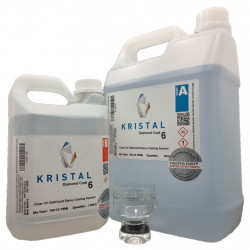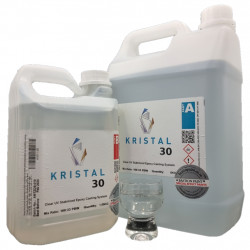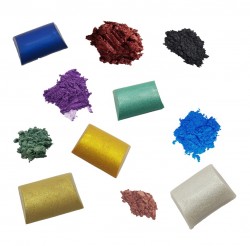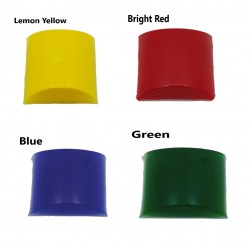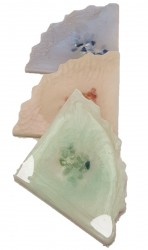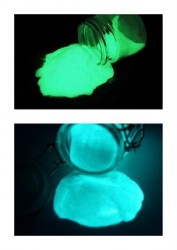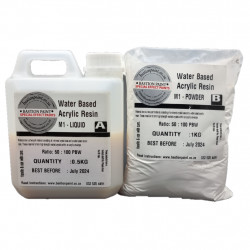General Art Epoxy Resin
From
R 267.00
Availability:
- Manufacturer's Brand Names: ArtPoxy and Art Resin
- A well priced resin made in South Africa
- Clear & UV Stabilised, The cured resin is glossy, hard and suitable for temperatures up to 80degC.
- A medium flow resin for pouring or casting in layers of 1 to 10mm (max. 500g per cast).
- Typical Applications: Casting in silicone moulds, art applications, encapsulation of objects, crack filling, epoxy repair and bonding together materials.
- Note that medium flow resins may retain air bubbles in castings, especially in cool conditions. These will not be noticeable if the resin is coloured.
Downloads:
General Art Epoxy Resin
Manufacturer's Brand Name: Art Resin.
Made in South Africa.
Overview
- Manufactured in South Africa.
- Manufacturer’s Brand Name: ArtPoxy and Art Resin (both names are used)
- Clear, UV Stabilised (slow to yellow compared to non-stabilised resins).
- This resin has a higher viscosity (lower flow flow) than our other resin. The lower flow can be useful when pigments must not settle and in some applications of resin art. This can, however, lead to air bubbles being trapped and visible in clear casting, especially in cool weather.
- Cast in layers of 1mm to 10mm thick with maximum 500g per cast.
- Not approved for food contact and not suitable for heat contact or exposure above 80oC.
- Mixing ratio is 100 Resin : 50 Hardener by weight. This can also be stated as 2 to 1.
Typical applications of this epoxy resin
- Small batch castings from 1-10mm deep with a maximum of 500g of resin per casting.
- Not recommended for clear castings due to possible air bubbles but very useful in castings where pigments should not settle.
- Art applications e.g. thin layer resin art on flat surfaces such as tiles, glass, wood etc.
- Resin encapsulation of objects
- Crack filling, epoxy repair and bonding together materials. Please note that Epoxy cannot bond together plastic, plastic is resistant to epoxy.
- Not recommended for countertops.
You can download a PDF document with detailed specifications and instructions from this website page and if you purchase we will send a hard copy with your order.
General points for all resin work
Resins are not simple to work with. Start small and get to know your products and the correct methods.
Preparation and mixing are crucial for any resin project to be successful. Read and follow all instructions carefully. Only mix the quantity that you will use immediately as resins cannot be stored after mixing. The heat generated in a container of un-poured resin or in resin that is applied too thick can reach dangerously high levels. The maximum layer thickness indicated does not apply in all conditions and must be reduced in hot weather and when casting into closed systems with little surface area for heat loss.
You need to take health precautions when working with resins so read safety and health instructions carefully. The hardener of epoxy resins is an irritant to the eyes, skin and mucous membranes. Avoid direct skin contact an never get it in your eyes. Wear safety glasses, long sleeves and rubber gloves to minimise skin contact. While good quality epoxy resins are VOC free and don't give off significant fumes at ambient temperature, they can give off off fumes if they get hot during curing and many additives such as colourants do give off fumes. As a minimum, always use resins in a well ventilated area and don't let them cure in your bedroom for example. If you work with them regularly or on large projects then wear a suitable respirator.
Keep out of reach of children.
Pack Size |
|
| Unit Size |
1.5kg (1.36 Litres)
3.00kg (2.73 Litres)
0.75kg (682ml)
|
Size |
|
| Size | |
Starter Pack |
|
| Starter Pack | |
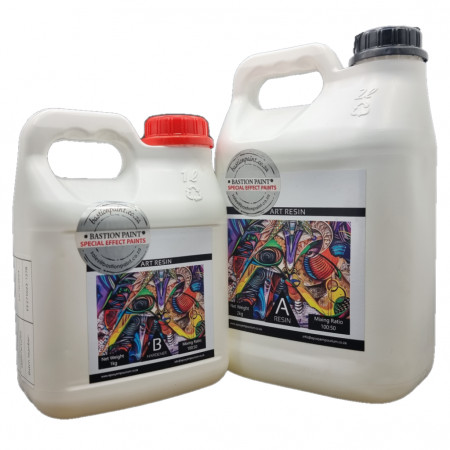





 General Art Epoxy Resin
General Art Epoxy Resin




